SECAM delegates are also to “discern” how the people of God in Africa “can engage more actively and credibly in peacebuilding, post-conflict healing, and dialogue”.
The delegates of SECAM at the Kigali Plenary Assembly are to take up the task that the multi-year XVI Ordinary General Assembly of the Synod of Bishops, the Synod on Synodality, which Pope Francis officially inaugurated in 2021 and later extended to 2024 gave to the Catholic Bishops in Africa.
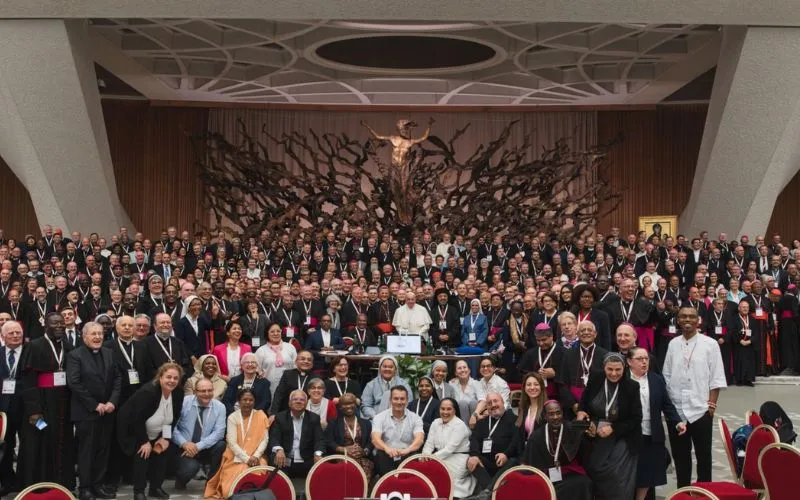 Credit: Vatican Media
Credit: Vatican Media
Specifically, following the first session of the Synod on Synodality that took place from 4-29 October 2023, concluding with a 42-page summary report, and the 2-27 October 2024 second session that concluded with a Final Document of the XVI Assembly, Africa’s Catholic Bishops were called upon “to promote theological and pastoral discernment on the issue of polygamy”.
The Synod on Synodality that was realized under the theme, “For a synodal Church: Communion, participation and mission.” also encouraged SECAM members to foster “the accompaniment of people in polygamous unions coming to faith.”
(Story continues below)
During the October 2024 Synod on Synodality session, the President SECAM, Fridolin Cardinal Ambongo, outlined “a four-phase plan” that he said Catholic Bishops in Africa have agreed upon to address the challenge of polygamy on the continent.
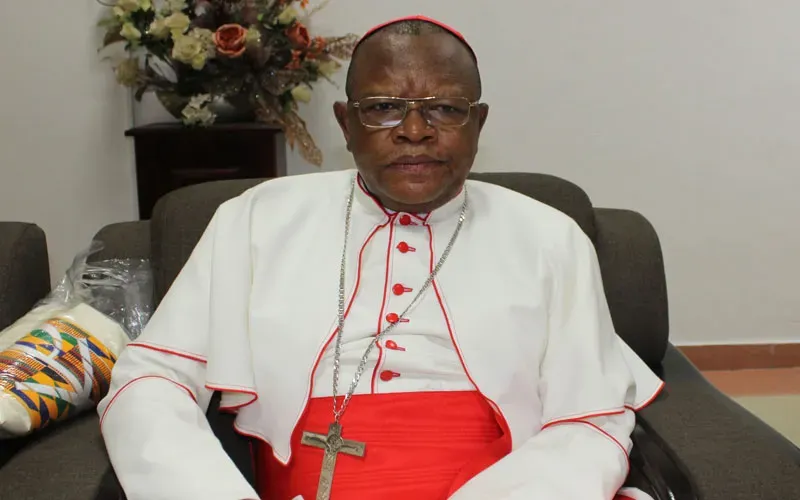 Fridolin Cardinal Ambongo, President of the Symposium of Episcopal Conference of Africa and Madagascar (SECAM). Credit: ACI Africa
Fridolin Cardinal Ambongo, President of the Symposium of Episcopal Conference of Africa and Madagascar (SECAM). Credit: ACI Africa
According to the concept note shared with ACI Africa, SECAM delegates at the Kigali Plenary Assembly are to “evaluate and adopt the pastoral document on polygamous unions, as part of the Church’s response to complex social realities.”
The Plenary Assembly delegates are also “to deepen reflection on synodality, missionary discipleship, and inculturation in a wounded and plural Africa.”
An additional specific objective of the upcoming Plenary Assembly, according to the concept note, will be “to renew and restructure SECAM’s leadership and mechanisms in view of the challenges ahead.”
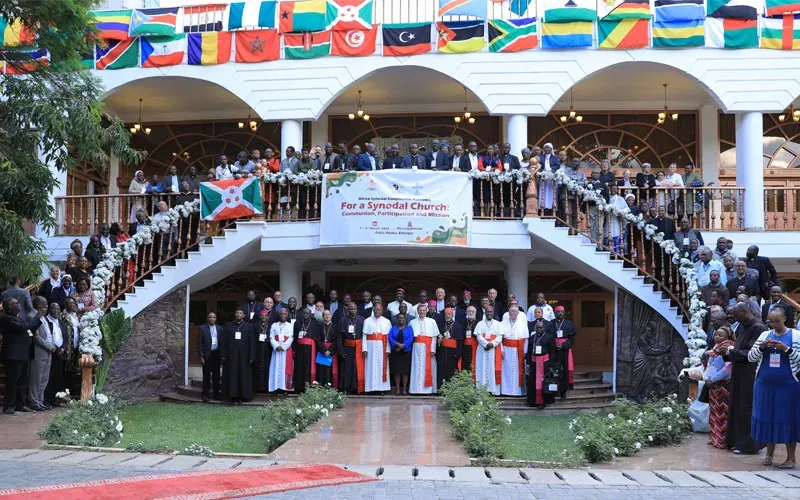 Delegates during the 1-6 March 2023 SECAM Plenary Assembly in Ethiopia’s capital city, Addis Ababa. Credit: ACI Africa
Delegates during the 1-6 March 2023 SECAM Plenary Assembly in Ethiopia’s capital city, Addis Ababa. Credit: ACI Africa
SECAM members are drawn from eight regional associations, which include ACEAC, the Association of Member Episcopal Conferences in Eastern Africa (AMECEA), the Association of Episcopal Conferences of Central Africa Region (ACERAC), and the Regional Episcopal Conferences of West Africa (RECOWA/CERAO).
Other regional associations are the Assembly of the Catholic Hierarchy of Egypt (AHCE), the Regional Episcopal Conferences of North Africa (CERNA), Madagascar and Episcopal Conferences of Indian Ocean (CEDOI), and the Inter-Regional Meeting of the Bishops of Southern Africa (IMBISA).
Expected participants in the 20th Plenary Assembly of SECAM include Cardinals, Archbishops, Bishops from the eight SECAM regions; Vatican officials; representatives from other continental Catholic Bishops’ Conferences; representatives of Theologians, Religious Orders and Laity; peacebuilding experts and ecumenical observers; media personnel; and other “special invitees”.
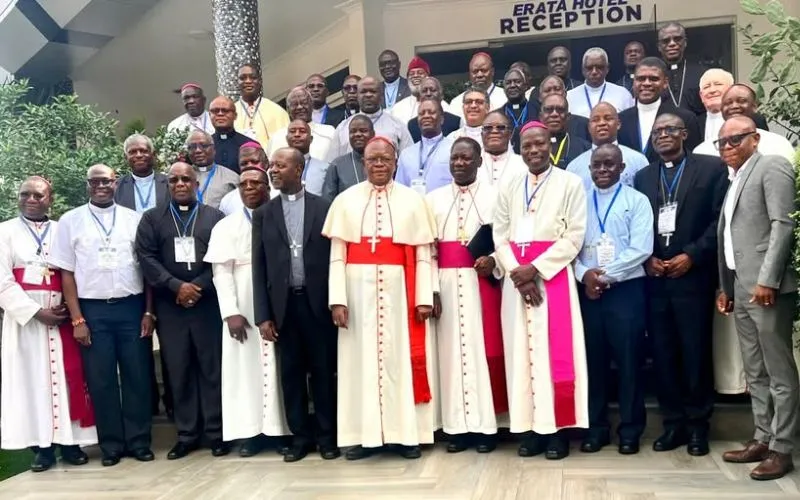 Members of the Standing Committee of the Symposium of Episcopal Conferences of Africa and Madagascar (SECAM). Credit: SECAM
Members of the Standing Committee of the Symposium of Episcopal Conferences of Africa and Madagascar (SECAM). Credit: SECAM
Some of the planned activities include an opening ceremony on July 31, thematic presentation sessions, group work, a “closed session” for SECAM members, and a closing ceremony, among others.
In the concept note on the Plenary Assembly, SECAM leadership calls upon “all members of SECAM and beyond to walk with us in prayer, discernment, and hope.”
“From the ashes of war, we raise a new vision. With Christ, peace is possible. With faith, Africa shall rise,” SECAM leadership says in the concept note shared with ACI Africa.
ACI Africa was founded in 2019. We provide free, up-to-the-minute news affecting the Catholic Church in Africa, giving particular emphasis to the words of the Holy Father and happenings of the Holy See, to any person with access to the internet. ACI Africa is proud to offer free access to its news items to Catholic dioceses, parishes, and websites, in order to increase awareness of the activities of the universal Church and to foster a sense of Catholic thought and culture in the life of every Catholic.
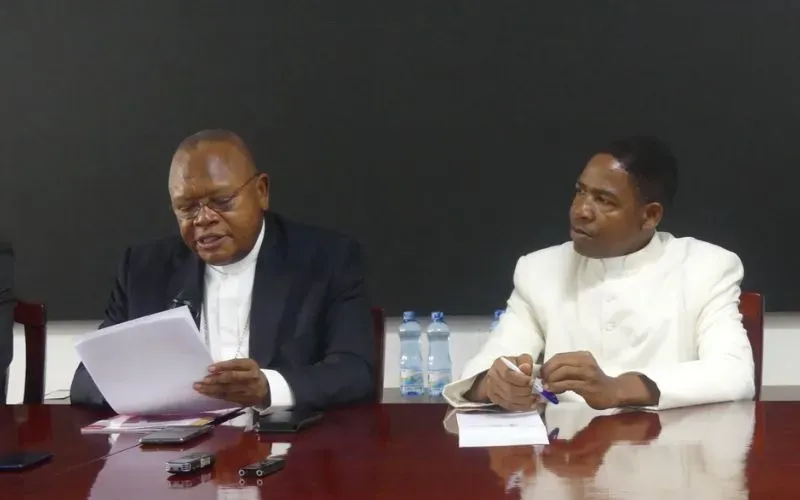 Fridolin Cardinal Ambongo (left) and Fr. Rafael Simbine Junior (right) during a 25 April 2024 press conference in Nairobi, Kenya. Credit: ACI Africa
Fridolin Cardinal Ambongo (left) and Fr. Rafael Simbine Junior (right) during a 25 April 2024 press conference in Nairobi, Kenya. Credit: ACI Africa


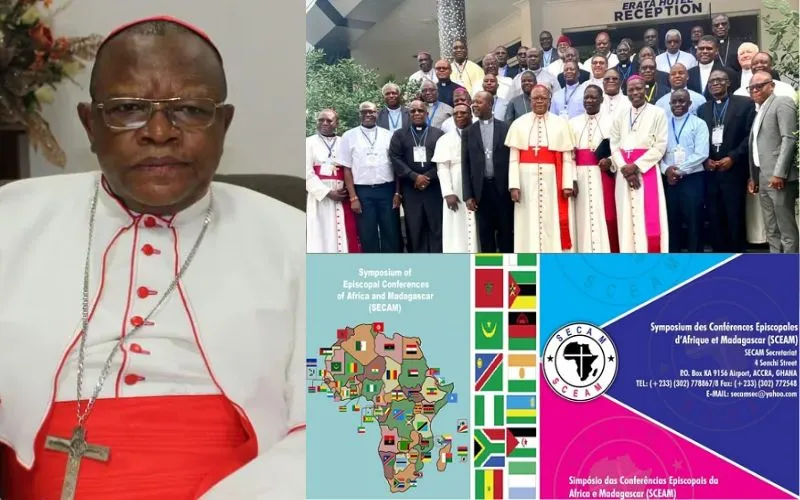
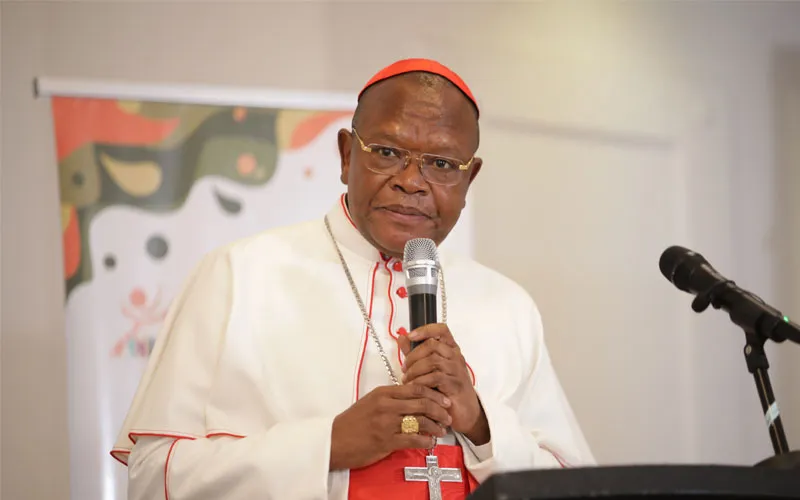 Fridolin Cardinal Ambongo addressing delegates during the opening ceremony of the 1-6 March 2023 SECAM Plenary Assembly taking place in Ethiopia’s capital city, Addis Ababa. Credit: ACI Africa
Fridolin Cardinal Ambongo addressing delegates during the opening ceremony of the 1-6 March 2023 SECAM Plenary Assembly taking place in Ethiopia’s capital city, Addis Ababa. Credit: ACI Africa
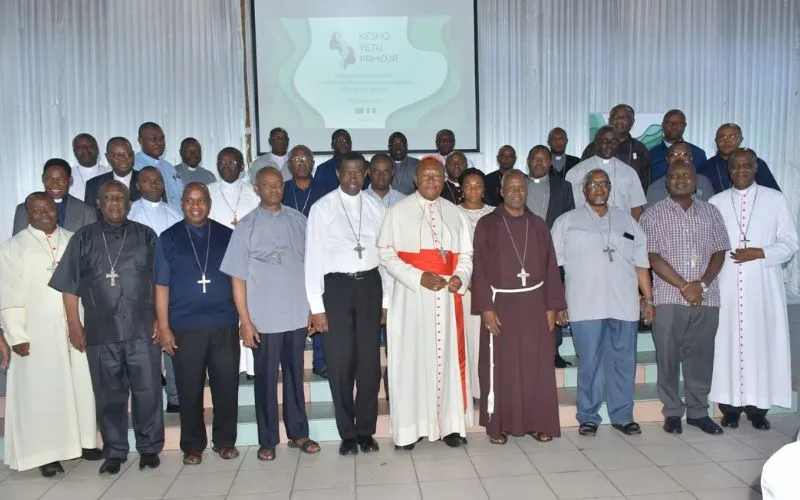 Credit: SECAM
Credit: SECAM Credit: Vatican Media
Credit: Vatican Media Fridolin Cardinal Ambongo, President of the Symposium of Episcopal Conference of Africa and Madagascar (SECAM). Credit: ACI Africa
Fridolin Cardinal Ambongo, President of the Symposium of Episcopal Conference of Africa and Madagascar (SECAM). Credit: ACI Africa Delegates during the 1-6 March 2023 SECAM Plenary Assembly in Ethiopia’s capital city, Addis Ababa. Credit: ACI Africa
Delegates during the 1-6 March 2023 SECAM Plenary Assembly in Ethiopia’s capital city, Addis Ababa. Credit: ACI Africa Members of the Standing Committee of the Symposium of Episcopal Conferences of Africa and Madagascar (SECAM). Credit: SECAM
Members of the Standing Committee of the Symposium of Episcopal Conferences of Africa and Madagascar (SECAM). Credit: SECAM


